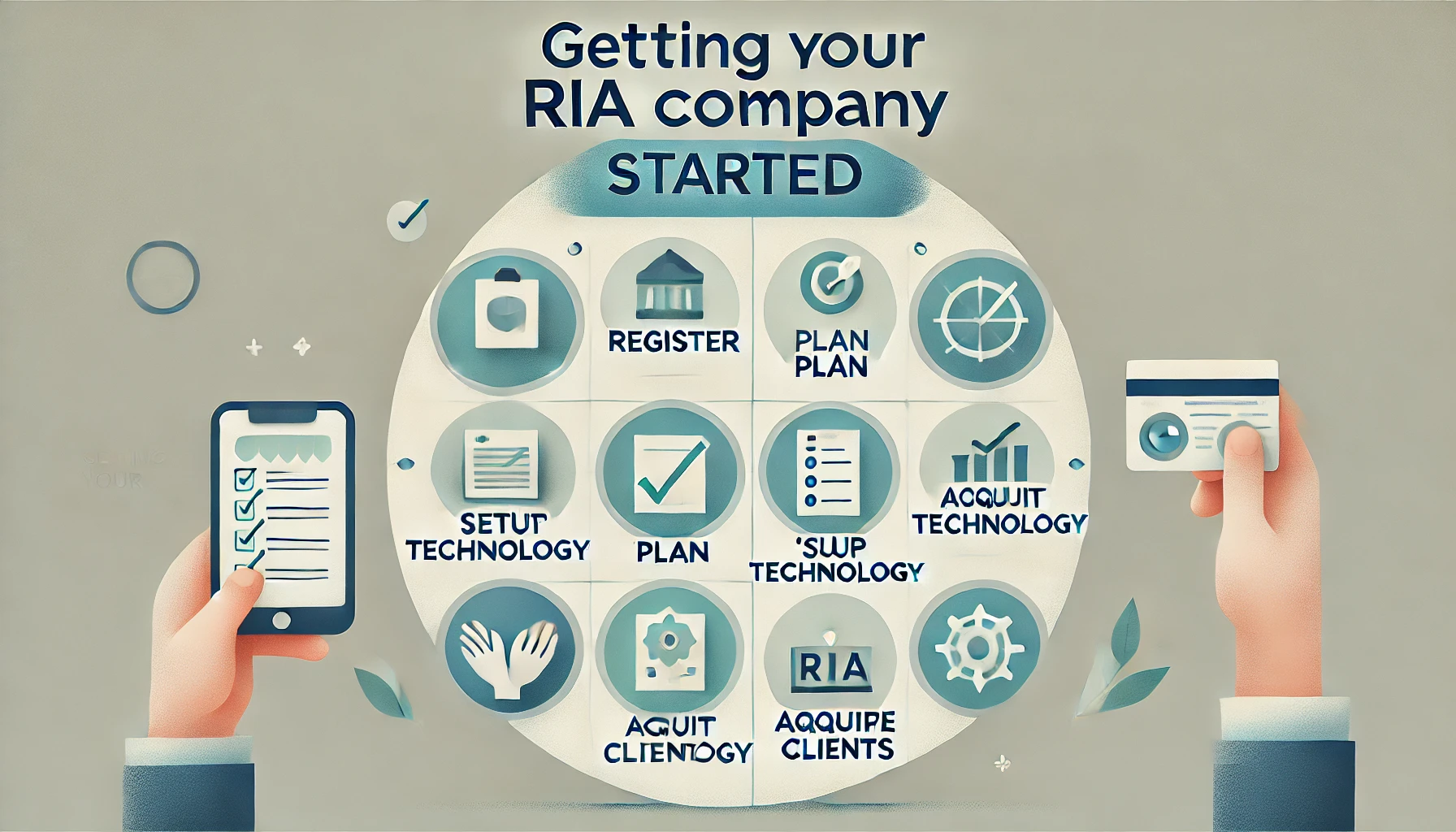How to become an independent registered investment advisor
Embark on an exciting journey as we explore the thrilling world of finance in our comprehensive guide on becoming an independent registered investment advisor. This is not just a career, it's an adventure! Dive in and let the exploration begin!
Comprehending an Independent RIA's Function
A professional that manages investment portfolios for clients and provides financial advice is known as an Independent Registered Investment Advisor (RIA). RIAs, as opposed to brokers, have a fiduciary duty to operate in their clients' best interests, prioritizing their requirements before their own. Because of their independence, RIAs are able to offer a wider variety of investment options and impartial advice.
RIAs usually receive payment as a proportion of assets under management (AUM) as opposed to product commissions. By balancing the advisor's and the client's interests, this fee-based model promotes long-term relationships and trust.
RIA Market Demand
There is a growing need in the US for independent financial advisors. This trend is influenced by a number of factors, including as evolving regulations, heightened investor awareness, and a growing desire for individualized, fiduciary advice. Clients are looking for advisors who can guide them through market volatility and help them reach their financial objectives in the current economic climate.
The need for wealth management and retirement planning services is also being driven by the aging population, especially the Baby Boomer generation. These people are searching for advisors that can offer complete financial planning, including estate planning, tax strategies, and investment management, as they get closer to retirement.

Requirements for Education and Professional Experience
It takes a good academic background and the appropriate qualifications to become an RIA. Although not a specific degree is needed to become a registered investment advisor (RIA), it is strongly advised to have a bachelor's degree in finance, economics, accounting, or a similar discipline. A master's in business administration (MBA) or other advanced degree can help improve your credentials.
It is essential to earn professional qualifications in addition to academic schooling. The Certified Financial Planner (CFP) credential is the most often held certification among RIAs. The titles of Chartered Financial Analyst (CFA) and Chartered Financial Consultant (ChFC) are two more useful certifications.
You have to pass the Series 65 exam, which includes legal, regulatory, ethical, and financial issues, in order to work as a registered investment advisor (RIA) legally. As an alternative, you can fulfill the qualifying requirements by combining the Series 7 and Series 66 tests.

Getting Your RIA Company Started
Establishing your own RIA company requires a number of crucial actions. Prior to anything else, you must decide on your company's legal structure, whether it be an LLC, partnership, or sole proprietorship. Before choosing a structure, it's crucial to speak with a legal or tax expert because every one has unique legal and tax ramifications.
The next step is to register your company with the relevant regulatory bodies. The Securities and Exchange Commission (SEC) registration is required if your company will handle assets valued at $100 million or more. Companies that oversee assets under $100 million usually register with state authorities.
Additionally, you must fill up and submit Form ADV, which contains comprehensive information about your company's offerings, costs, and any possible conflicts of interest. Regulators use Form ADV to evaluate whether your company complies with relevant laws and regulations.
Establishing a Customer Base
One of the hardest things about operating a financial advisory firm is attracting and keeping clients. It's critical to have a distinct value proposition that sets your services apart from those of competitors if you want to grow your clientele. This could entail focusing on a certain area, like socially conscious investing, tax-efficient investing, or retirement planning.
Moreover important to acquiring new clients are branding and marketing. You may reach potential customers with the use of a polished website, social media presence, and targeted advertising. Furthermore, networking with other professionals—such as attorneys and accountants—can result in beneficial recommendations.
Maintaining a clientele and getting recommendations requires great customer service. This entails consistent correspondence, open reporting, and tailored guidance that takes into account the particular requirements of every customer.
Regulatory Considerations and Compliance
For RIAs, adhering to regulatory obligations is paramount. Regulation violations may lead to penalties, legal action, and reputational harm. Important legal requirements include upholding fiduciary standards, giving clients full information, and keeping correct records.
Every year and if there are significant changes to your company, Form ADV needs to be amended. In order to prevent violations of securities regulations, RIAs must also have written policies and procedures in place. Maintaining staff training and conducting regular compliance audits will assist guarantee that your company stays in conformity with regulatory standards.
Technology and Resources for RIAs
Technology is essential to an RIA practice's success. The correct tools can boost productivity, enhance client satisfaction, and assist business growth. Examples of these technologies include portfolio management software and client relationship management (CRM) systems.
Think about things like data security, scalability, integration with other systems, and ease of use when choosing technology for your business. Cloud-based solutions are becoming more and more popular because of their affordability and flexibility.
Fintech advancements can also be used to provide clients with better investing outcomes and a wider selection of services, such as robo-advisors and automated trading platforms.
Overseeing and Expanding Your RIA Enterprise
You might need to bring on more employees as your RIA practice expands in order to handle administrative duties, maintain client connections, and offer specialized knowledge. Maintaining the level of service that customers demand depends on selecting the proper team.
Careful financial preparation is also necessary while scaling your firm. This include controlling cash flow, setting aside money for expenses, and putting earnings back into the company. As your clientele grows, you should think about broadening your service portfolio to accommodate their changing requirements.
Continually evaluating and modifying your business plan will help you maintain your competitive edge in a market that is changing quickly. This could entail entering new markets, implementing cutting-edge technology, or establishing business alliances with other companies.

Difficulties and Prospects in the Present Market
The financial advising sector is dealing with a number of issues, such as heightened competition, fee compression, and altered regulations. But these difficulties also offer RIAs a chance to stand out from the competition and take market share.
For instance, possibilities for independent advisers who can provide objective, client-centered services are being created by the trend toward fee transparency and fiduciary counsel. A sizable and profitable market exists for RIAs due to the rising demand for asset management and retirement planning services.
Long-term success depends on keeping up with market developments and staying aware of industry trends. You may prosper as an independent RIA in the current economic climate by embracing innovation, keeping a laser-like focus on your clients, and never stopping learning and growing.
Conclusion
Developing a career as an independent Registered Investment Advisor is gratifying since it provides the chance to positively influence clients' financial well-being and create enduring relationships with them. Although being a Registered Investment Advisor (RIA) has certain requirements, many financial professionals find it to be a very desired option due to the benefits of freedom, flexibility, and satisfied clients. By adhering to the guidelines provided in this guide and maintaining a dedication to continuous learning and career advancement, you may establish a prosperous and long-lasting RIA business that caters to the demands of contemporary investors.
You May Also Like:








